- Culture
- SEE MORE
- classical
- general
- talk
- News
- Family
- Bürgerfunk
- pop
- Islam
- soul
- jazz
- Comedy
- humor
- wissenschaft
- opera
- baroque
- gesellschaft
- theater
- Local
- alternative
- electro
- rock
- rap
- lifestyle
- Music
- como
- RNE
- ballads
- greek
- Buddhism
- deportes
- christian
- Technology
- piano
- djs
- Dance
- dutch
- flamenco
- social
- hope
- christian rock
- academia
- afrique
- Business
- musique
- ελληνική-μουσική
- religion
- World radio
- Zarzuela
- travel
- World
- NFL
- media
- Art
- public
- Sports
- Gospel
- st.
- baptist
- Leisure
- Kids & Family
- musical
- club
- Health & Fitness
- True Crime
- Fiction
- children
- Society & Culture
- TV & Film
- gold
- kunst
- música
- gay
- Natural
- a
- francais
- bach
- economics
- kultur
- evangelical
- tech
- Opinion
- Government
- gaming
- College
- technik
- History
- Jesus
- Health
- movies
- radio
- services
- Church
- podcast
- Education
- international
- Transportation
- Other
- kids
- podcasts
- philadelphia
- Noticias
- love
- sport
- Salud
- film
- and
- 4chan
- Disco
- Stories
- fashion
- Arts
- interviews
- hardstyle
- entertainment
- humour
- medieval
- literature
- alma
- Cultura
- video
- TV
- Science
- en
Healthcare, Travel Insurance and Medical Tourism in Puerto Vallarta, Mexico
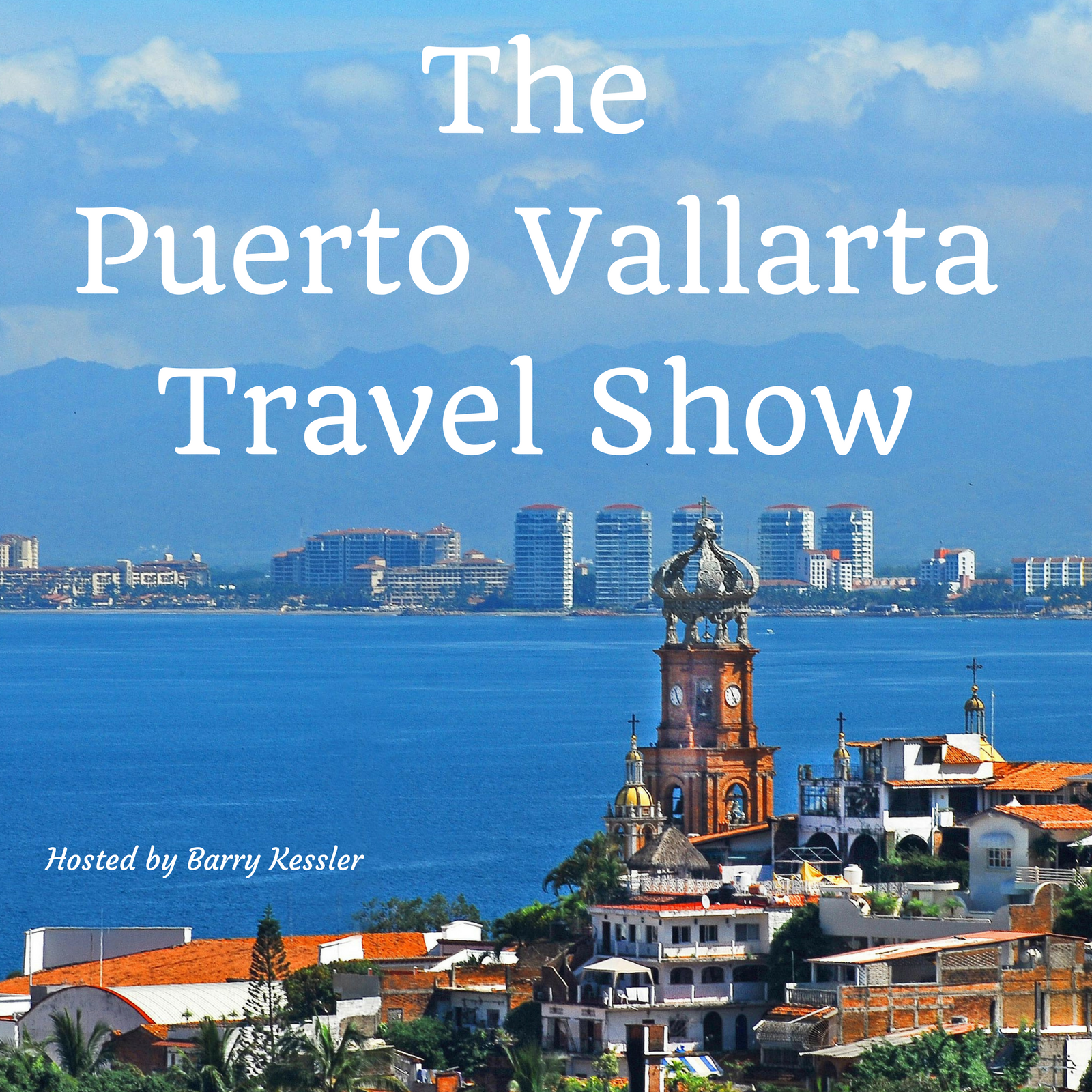
Pamela Thompson of HealthCare Resources in Puerto Vallarta Explains the Importance of Medical Travel Insurance when traveling in Mexico, Medical Tourism and Medical Procedures that Tourists Seek in Puerto Vallarta.
Listen to the Podcast!
Subscribe on iTunes & Leave a Good Review
Hello fellow travelers, welcome this episode of the Puerto Vallarta Travel show. I am your host Barry Kessler and I am just so happy to be to introducing you to my favorite vacation destination, and maybe even yours, Puerto Vallarta Mexico. That music you were just listing to is performed by Alberto Perez, the owner of the La Palapa Group of Restaurants. Those are La Palapa, The El Dorado [caption id="attachment_195" align="alignright" width="300"] La Palapa, Puerto Vallarta Mexico[/caption] Restaurant, and now, at night for dinner The El Dorado transforms into The Vista Grill. That’s the Vista Grill that used to be up on the hill. Well now it has a new vista and that is right on the beach where you get the same Vista Grill Menu, and the fantastic Vista Grill service and what’s best, is it’s right there on the beach with a dramatic view of the Los Muertos Pier. You’ll recognize the pier with its stunning sail like structure, all lit up at night with beautiful colors. You can enjoy dinner under the stars, with your toes in the sand right at the water’s edge. ! It’s so romantic, it’s so Puerto Vallarta my friends! Today we have a very special guest but first, what’s happening in Puerto Vallarta this week, the 12th of June, 2017. We had our first sprinkling of the summer the other day, but it was just a tease. This week will be the week the rains return to Vallarta. I’ll be waiting to see if we get rain on my birthday, June 15th which according to our buddy JR is the beginning of the rainy season. Stay tuned for that report next week.
La Palapa, Puerto Vallarta Mexico[/caption] Restaurant, and now, at night for dinner The El Dorado transforms into The Vista Grill. That’s the Vista Grill that used to be up on the hill. Well now it has a new vista and that is right on the beach where you get the same Vista Grill Menu, and the fantastic Vista Grill service and what’s best, is it’s right there on the beach with a dramatic view of the Los Muertos Pier. You’ll recognize the pier with its stunning sail like structure, all lit up at night with beautiful colors. You can enjoy dinner under the stars, with your toes in the sand right at the water’s edge. ! It’s so romantic, it’s so Puerto Vallarta my friends! Today we have a very special guest but first, what’s happening in Puerto Vallarta this week, the 12th of June, 2017. We had our first sprinkling of the summer the other day, but it was just a tease. This week will be the week the rains return to Vallarta. I’ll be waiting to see if we get rain on my birthday, June 15th which according to our buddy JR is the beginning of the rainy season. Stay tuned for that report next week.
Marigalante Getting a Facelift, New Shows
[caption id="attachment_751" align="aligncenter" width="1000"] Marigalante Pirate Ship, Puerto Vallarta, Mexico[/caption] I was reading an article in the Banderas News and it explains the absence of the Marigalene Pirate Ship this last trip down. The boat has been in dry-dock up in Mazatlán, getting her biannual maintenance done. Now I didn’t know this, but the Marigalante is actually a replica of the Santa Maria, one of the three ships Columbus sailed across the Atlantic, and the Marigalante is the Spanish galleon that you may have seen out in the bay. She can be seen sailing out each morning, heading south to the cool beaches beyond Los Arcos, in fact I believe it goes to the beach cove off of the resort Majauetes, that Diana Edelman was talking about in episode 15, the show about vegan dining in Puerto Vallarta. Then every night you will see the Marigalante in the bay just off the Malecon, firing off fireworks at around between 9 and 9:30 each evening. [caption id="attachment_791" align="alignright" width="195"]
Marigalante Pirate Ship, Puerto Vallarta, Mexico[/caption] I was reading an article in the Banderas News and it explains the absence of the Marigalene Pirate Ship this last trip down. The boat has been in dry-dock up in Mazatlán, getting her biannual maintenance done. Now I didn’t know this, but the Marigalante is actually a replica of the Santa Maria, one of the three ships Columbus sailed across the Atlantic, and the Marigalante is the Spanish galleon that you may have seen out in the bay. She can be seen sailing out each morning, heading south to the cool beaches beyond Los Arcos, in fact I believe it goes to the beach cove off of the resort Majauetes, that Diana Edelman was talking about in episode 15, the show about vegan dining in Puerto Vallarta. Then every night you will see the Marigalante in the bay just off the Malecon, firing off fireworks at around between 9 and 9:30 each evening. [caption id="attachment_791" align="alignright" width="195"]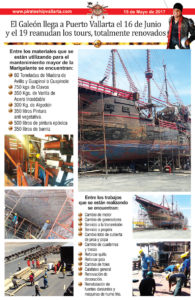 Marigalante Puerto Vallarta[/caption] [caption id="attachment_752" align="alignright" width="171"]
Marigalante Puerto Vallarta[/caption] [caption id="attachment_752" align="alignright" width="171"] Marigalante Pirate Ship, Drydock Mazatlan[/caption] But don’t worry, After an absence of almost two months, the Marigalante, will soon return to the waters of Banderas Bay. She'll set sail again on Monday, June 19, 2017 - and she'll do it with a fresh look and all new shows. The last time the Marigalante was out of water was in 2015 when the last set of maintenance was carried out. One of the main tasks that is performed each time the ship is sent for maintenance is to make sure the galleon is completely watertight . This time, the 100% wood galleon had no leaks in its hull but, as the more than 30 species of tropical woods she's made from are constantly either submerged or weathered, it was time to give her some TLC. The scheduled maintenance cost around 10 million pesos (more than $500,000 USD) and involved 60 tons wood, stainless steel rods, over 850 liters of paint and 350 liters of varnish. Additional works included the installation of a new engine; servicing the generator, transmission and propeller; and replacing the bow and stern decks. The team of experts also reinforced the boat's keel and rudder and did some general renovating and redecorating. The Marigalente weighs about 700 tons, has three wooden masts with triangular sails and four decks with a total capacity of 240 passengers. [caption id="attachment_745" align="alignright" width="300"]
Marigalante Pirate Ship, Drydock Mazatlan[/caption] But don’t worry, After an absence of almost two months, the Marigalante, will soon return to the waters of Banderas Bay. She'll set sail again on Monday, June 19, 2017 - and she'll do it with a fresh look and all new shows. The last time the Marigalante was out of water was in 2015 when the last set of maintenance was carried out. One of the main tasks that is performed each time the ship is sent for maintenance is to make sure the galleon is completely watertight . This time, the 100% wood galleon had no leaks in its hull but, as the more than 30 species of tropical woods she's made from are constantly either submerged or weathered, it was time to give her some TLC. The scheduled maintenance cost around 10 million pesos (more than $500,000 USD) and involved 60 tons wood, stainless steel rods, over 850 liters of paint and 350 liters of varnish. Additional works included the installation of a new engine; servicing the generator, transmission and propeller; and replacing the bow and stern decks. The team of experts also reinforced the boat's keel and rudder and did some general renovating and redecorating. The Marigalente weighs about 700 tons, has three wooden masts with triangular sails and four decks with a total capacity of 240 passengers. [caption id="attachment_745" align="alignright" width="300"]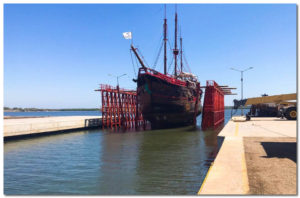 Marigalante Pirate Ship, Drydock Mazatlan[/caption] I have had several people tell me that although the Pirate ship cruise is a little touristy and somewhat hokey, all of them say that the food was good and the alcohol flowed freely. Sounds good to me. Also, it seems to me that the tour gives you a great opportunity to see the Malecon at night from a whole different perspective. From the ocean looking in. So interesting. Look, I didn’t want this to turn into a commercial for the Marigalante, but I guess it kinda was. If you have taken the cruise, either during the day or night, send me an email and let me know what you thought of the cruise. How you bought the tickets and how much you paid. Did you think it was worth the money? Let me know. Anyway, I have links and pictures of the Marigalante in drydock in Mazatlan. Check them out at www.puertovallartatravelshow.com episode 23.
Marigalante Pirate Ship, Drydock Mazatlan[/caption] I have had several people tell me that although the Pirate ship cruise is a little touristy and somewhat hokey, all of them say that the food was good and the alcohol flowed freely. Sounds good to me. Also, it seems to me that the tour gives you a great opportunity to see the Malecon at night from a whole different perspective. From the ocean looking in. So interesting. Look, I didn’t want this to turn into a commercial for the Marigalante, but I guess it kinda was. If you have taken the cruise, either during the day or night, send me an email and let me know what you thought of the cruise. How you bought the tickets and how much you paid. Did you think it was worth the money? Let me know. Anyway, I have links and pictures of the Marigalante in drydock in Mazatlan. Check them out at www.puertovallartatravelshow.com episode 23. 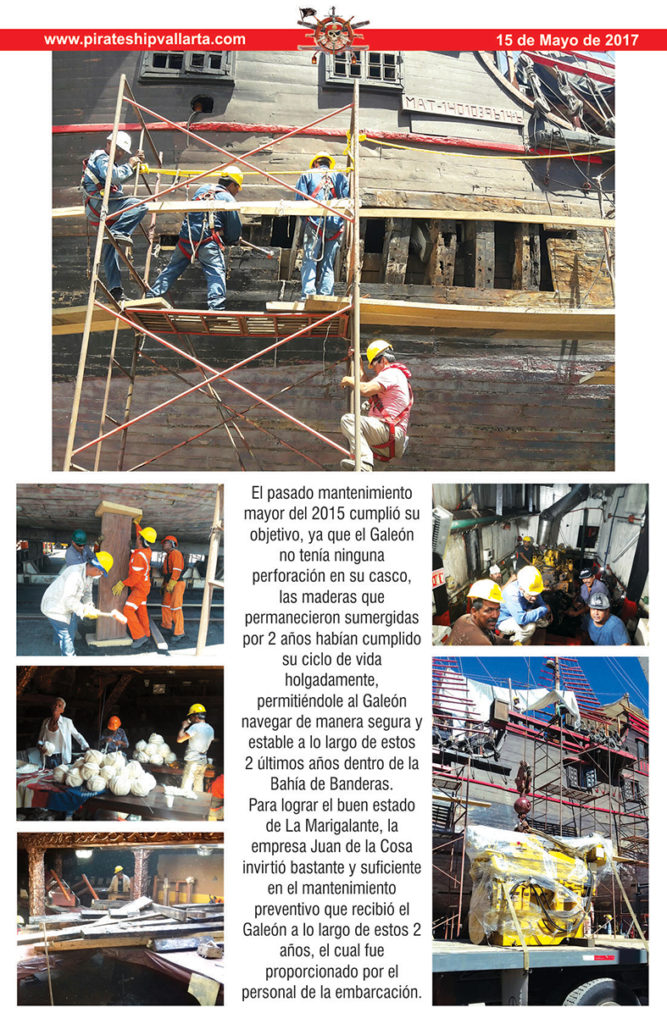 [caption id="attachment_788" align="alignnone" width="667"]
[caption id="attachment_788" align="alignnone" width="667"]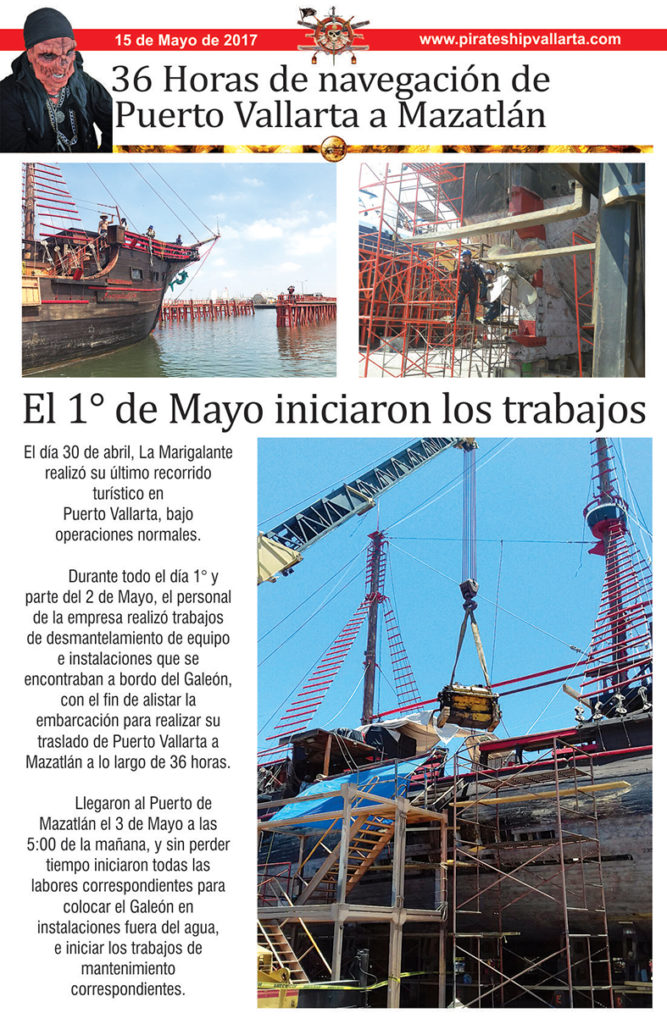 Marigalante Puerto Vallarta[/caption]
Marigalante Puerto Vallarta[/caption]
The Marigalante Website Click Here
Travel Insurance in Mexico
Okay, how many of you vacationers who travel to Mexico buy travel insurance before you leave for your trip? You don’t? How about this warning from the U.S. [caption id="attachment_749" align="alignright" width="300"]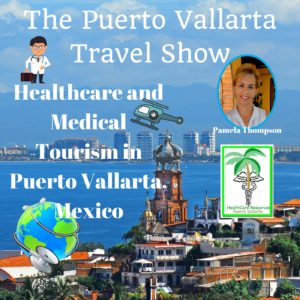 Pamela Thompson, HealthCare Resources, Puerto Vallarta[/caption] State Department… US Citizens should be aware of their rights under Mexican Law. Most Mexican healthcare facilities require payment “up front” prior to performing a procedure. Most hospitals in Mexico do not accept U.S. domestic health insurance or Medicare/Medicaid and will only accept payment via cash, credit, debit card or bank transfer. How about this headline? "Medical bills leave Lafayette woman stranded in Mexico." Or this one...? "Man trapped in Mexican Hospital with allergic reaction to a jellyfish sting and a $50,000 bill". There are numerous articles you can find with a simple google search that tell us something that many of us never think about when we go to Mexico on vacation. What happens if something happens to us when we are in paradise? In fact, we talked about the subject of hospitals and doctors in Puerto Vallarta with Brad and Tami back on episode 18 I think. They had several incidents where they needed medical attention and they luckily had travel insurance that covered their medical bills. That brings us to our very special guest, Pamela Thompson of HealthCare Resources in Puerto Vallarta. I was introduced to Pamela by several of my friends here [caption id="attachment_734" align="alignright" width="216"]
Pamela Thompson, HealthCare Resources, Puerto Vallarta[/caption] State Department… US Citizens should be aware of their rights under Mexican Law. Most Mexican healthcare facilities require payment “up front” prior to performing a procedure. Most hospitals in Mexico do not accept U.S. domestic health insurance or Medicare/Medicaid and will only accept payment via cash, credit, debit card or bank transfer. How about this headline? "Medical bills leave Lafayette woman stranded in Mexico." Or this one...? "Man trapped in Mexican Hospital with allergic reaction to a jellyfish sting and a $50,000 bill". There are numerous articles you can find with a simple google search that tell us something that many of us never think about when we go to Mexico on vacation. What happens if something happens to us when we are in paradise? In fact, we talked about the subject of hospitals and doctors in Puerto Vallarta with Brad and Tami back on episode 18 I think. They had several incidents where they needed medical attention and they luckily had travel insurance that covered their medical bills. That brings us to our very special guest, Pamela Thompson of HealthCare Resources in Puerto Vallarta. I was introduced to Pamela by several of my friends here [caption id="attachment_734" align="alignright" width="216"]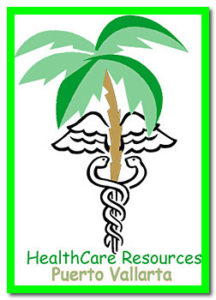 HealthCare Resources, Puerto Vallarta[/caption] who insisted she is the go to person when it comes to healthcare in Puerto Vallarta. She does so much here. You will see that she is involved in so many facets of the medical world, although her main thrust is Medical Tourism, and I was surprised at the types of medical procedures that she arranges for her clients in paradise. Kinda cool really. But this is going to be a very informative conversation and I would like to wrap it up at the end, with a quick review and good, reviewable show notes too. As usual. So let’s go to San Javier Hospital in Puerto Vallarta and join up with Pamela Thompson.
HealthCare Resources, Puerto Vallarta[/caption] who insisted she is the go to person when it comes to healthcare in Puerto Vallarta. She does so much here. You will see that she is involved in so many facets of the medical world, although her main thrust is Medical Tourism, and I was surprised at the types of medical procedures that she arranges for her clients in paradise. Kinda cool really. But this is going to be a very informative conversation and I would like to wrap it up at the end, with a quick review and good, reviewable show notes too. As usual. So let’s go to San Javier Hospital in Puerto Vallarta and join up with Pamela Thompson.
Listen to the Podcast
That was a lot of great information. The main takeaways...
- There is no such thing as free medical care here. Doesn’t matter how poor you are.
- The public system is the IMSS system and the regional hospital, that's the IMSS and Seguro Popular. Seguro Popular was created for the poorest of the [caption id="attachment_797" align="alignright" width="225"]
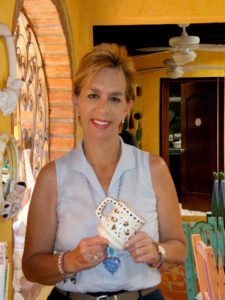 Pamela Thompson[/caption] poor
Pamela Thompson[/caption] poor - The regional hospital is a sad place.
- Medicare supplement or HMO doesn’t pay directly outside of the United States.
- And the air evacuation is very, very expensive and it must be paid upfront, before that plane leave take off down the runway. So it's important to have air evacuation policy or have your insurance include an air evac policy.
- Just have a good traveler’s insurance.
- Best Quote " One of the things that I said in an article I wrote recently is, it's not always the case, but I say, I have seen in the past, especially this past year, a policy sometimes is just as good as the agent you buy it from. Some agents, and I use the term loosely, are don't really know the policy. You know, go to a website that have many of the insurance policies. Pretty much anybody can become an agent. They just make a commission on it. Some of them don't really even understand the policy. You want an agent that's going to be there to help you and that really understands the policy in case you have a claim or you have an emergency. That's really important."
- Make sure you are with an agent that understands the policy and that goes for an international policy or a Mexican private policy.
- The doctors Pam works with, total 26 of all specialties.
I hope you got as much out of this conversation as I did. Pam Thompson, you are a very special person indeed and the people of Puerto Vallarta are so lucky to have you working for them. If you want to put pamela to work for you, her contact info is available right here in my show notes at www.puertovallartatravelshow.com episode 23.
Contact Pamela Thompson
www.healthcareresourcespv.com
pamela@healthcareresourcespv.com
Well we are through for today. I hope you enjoyed our talk with Pamela Thompson of HealthCare Resources Puerto Vallarta . Next week stay tuned for more on the ground reports from Puerto Vallarta Mexico and other surprises and Puerto Vallarta Travel tips and ideas. Until then, remember, this is an interactive show where I depend on your questions and suggestions about all things Puerto Vallarta. If you think of something I should be talking about, please reach out to me by clicking on the Contact us tab and sending us your message. And remember, if you are considering booking any type of tour while you are in Puerto Vallarta, you must go to Vallartainfo.com, JR’s website and reserve your tour through him, right from his website. Remember the value for value proposition. His experience and on the ground knowledge of everything Puerto Vallarta in exchange for your making a purchase of a tour that you would do anyway, you’re just doing it through him as a way of saying thank you. It costs no more than if you were to use someone else so do it. Really. And when you do take one of these tours, email me about your experiences. Maybe you can come onboard and share with others what you liked or didn’t like about the tour. Again contact me by clicking on the Contact us tab and sending off a message. And once again, if you like this podcast, please take the time and subscribe and give me a good review on iTunes if you would. That way we can get the word out to more and more people about the magic of this place. So, thanks to Pamela Thompson, check out the links to her website and blog at my website www.puertovallartatravelshow.com episode 23. I have pictures of most of her doctors and links to their information too. I also have a transcription of the conversation with Pamela in the shownotes as well so feel free to read, listen and share with all of your friends and fellow travelers. Remember to include a good travel insurance policy with your next trip to Mexico. Don't leave home without it! And hey, thanks to all of you for listening all the way through this episode of the Puerto Vallarta Travel Show. This is Barry Kessler signing off with a wish for you all to slow down, be kind and live the Vallarta lifestyle. Nos Vemos amigos! [caption id="attachment_719" align="alignright" width="300"]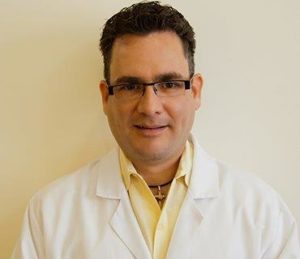 Dr. Daniel Velasco – Surgical Oncologist[/caption] [caption id="attachment_720" align="alignright" width="220"]
Dr. Daniel Velasco – Surgical Oncologist[/caption] [caption id="attachment_720" align="alignright" width="220"] Dr. Javier Diaz-Nuñez - Ear Nose and Throat Sp[/caption] [caption id="attachment_722" align="alignright" width="300"]
Dr. Javier Diaz-Nuñez - Ear Nose and Throat Sp[/caption] [caption id="attachment_722" align="alignright" width="300"] Dr. Manuel Hernandez - Orthopedic[/caption] [caption id="attachment_723" align="alignright" width="300"]
Dr. Manuel Hernandez - Orthopedic[/caption] [caption id="attachment_723" align="alignright" width="300"]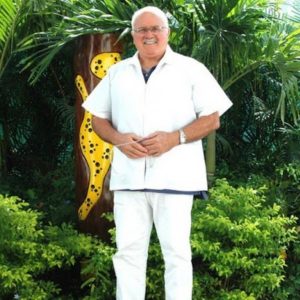 Dr. Octavio Lomeli - Dentist[/caption] [caption id="attachment_717" align="alignright" width="300"]
Dr. Octavio Lomeli - Dentist[/caption] [caption id="attachment_717" align="alignright" width="300"]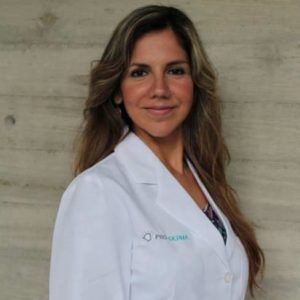 Dra. Alma Vargas - Dermatologist[/caption] [caption id="attachment_728" align="alignright" width="231"]
Dra. Alma Vargas - Dermatologist[/caption] [caption id="attachment_728" align="alignright" width="231"] Mari Torres – Complementary Medicine[/caption] [caption id="attachment_726" align="alignright" width="275"]
Mari Torres – Complementary Medicine[/caption] [caption id="attachment_726" align="alignright" width="275"]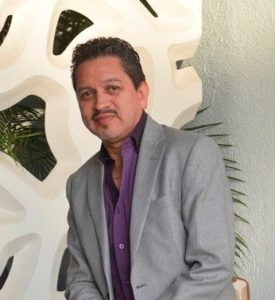 Dr. Miguel Saldaña - Plastic Surgery[/caption]
Dr. Miguel Saldaña - Plastic Surgery[/caption] 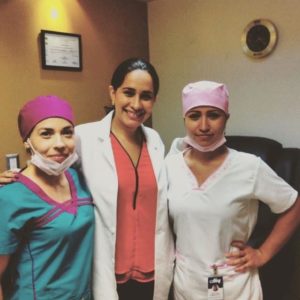


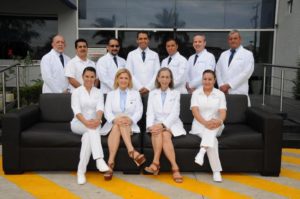
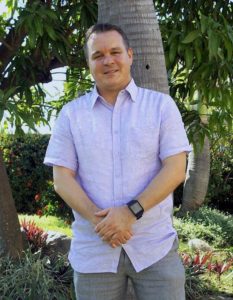
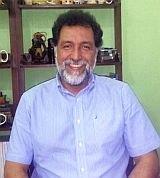
 [caption id="attachment_784" align="alignleft" width="119"]
[caption id="attachment_784" align="alignleft" width="119"]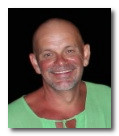 Paul Cankar – Physical Therapist[/caption] [caption id="attachment_779" align="alignleft" width="251"]
Paul Cankar – Physical Therapist[/caption] [caption id="attachment_779" align="alignleft" width="251"] Dra. Leticia Arechiga - Pediatrician[/caption] [caption id="attachment_778" align="alignnone" width="300"]
Dra. Leticia Arechiga - Pediatrician[/caption] [caption id="attachment_778" align="alignnone" width="300"]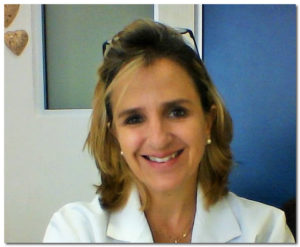 Dra. Leslie Swindle - Cardiologist[/caption] [caption id="attachment_780" align="aligncenter" width="111"]
Dra. Leslie Swindle - Cardiologist[/caption] [caption id="attachment_780" align="aligncenter" width="111"]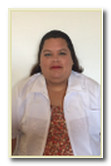 Dra. Maria Jose Cuevas - Oncologist[/caption] [caption id="attachment_782" align="alignright" width="221"]
Dra. Maria Jose Cuevas - Oncologist[/caption] [caption id="attachment_782" align="alignright" width="221"] Dra. Patricia Garcia -Dermatologist[/caption] [caption id="attachment_781" align="alignnone" width="276"]
Dra. Patricia Garcia -Dermatologist[/caption] [caption id="attachment_781" align="alignnone" width="276"]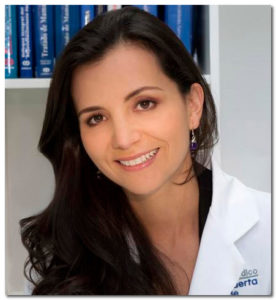 Dra. Nashielli – Plastic Surgeon[/caption] [caption id="attachment_777" align="alignnone" width="300"]
Dra. Nashielli – Plastic Surgeon[/caption] [caption id="attachment_777" align="alignnone" width="300"] Dra. Laura Garcia – OB-GYN[/caption] [caption id="attachment_783" align="aligncenter" width="174"]
Dra. Laura Garcia – OB-GYN[/caption] [caption id="attachment_783" align="aligncenter" width="174"] Nathalie Batilliot – Licensed Dietician-Diabetic Educator[/caption] [caption id="attachment_765" align="aligncenter" width="290"]
Nathalie Batilliot – Licensed Dietician-Diabetic Educator[/caption] [caption id="attachment_765" align="aligncenter" width="290"]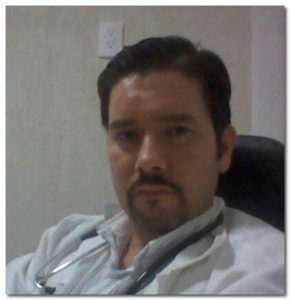 Dr. Cesar Gutierrez - Internist[/caption] [caption id="attachment_775" align="alignnone" width="243"]
Dr. Cesar Gutierrez - Internist[/caption] [caption id="attachment_775" align="alignnone" width="243"]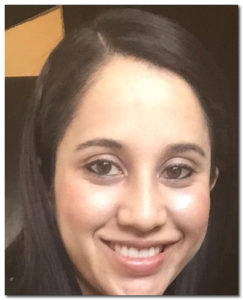 Dra. Cinthia Becerra - Specialist in BioIdentical Hormones[/caption] [caption id="attachment_764" align="aligncenter" width="300"]
Dra. Cinthia Becerra - Specialist in BioIdentical Hormones[/caption] [caption id="attachment_764" align="aligncenter" width="300"]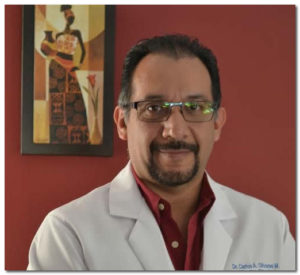 Dr. Carlos Olivares - Gastroenterologist[/caption] [caption id="attachment_774" align="alignnone" width="300"]
Dr. Carlos Olivares - Gastroenterologist[/caption] [caption id="attachment_774" align="alignnone" width="300"]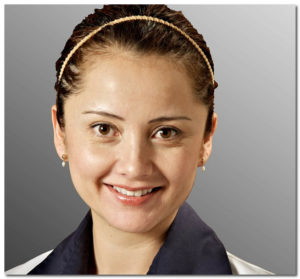 Dra. Adi Dominguez – Psychiatrist[/caption] [caption id="attachment_763" align="aligncenter" width="292"]
Dra. Adi Dominguez – Psychiatrist[/caption] [caption id="attachment_763" align="aligncenter" width="292"]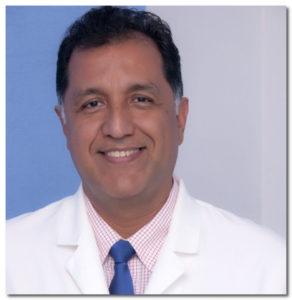 Dr. Carlos Garcia – Urologist[/caption] [caption id="attachment_762" align="aligncenter" width="300"]
Dr. Carlos Garcia – Urologist[/caption] [caption id="attachment_762" align="aligncenter" width="300"]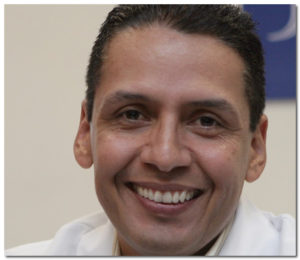 Dr. Armando Joya Gastroenterologist Gastric Surgeon Bariatric Surgeon[/caption] [caption id="attachment_773" align="alignnone" width="244"]
Dr. Armando Joya Gastroenterologist Gastric Surgeon Bariatric Surgeon[/caption] [caption id="attachment_773" align="alignnone" width="244"]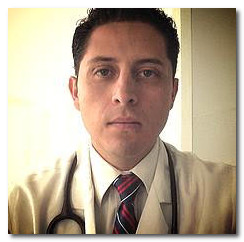 Dr. Roberto Gutierrez – Endocrinologist[/caption] [caption id="attachment_760" align="aligncenter" width="185"]
Dr. Roberto Gutierrez – Endocrinologist[/caption] [caption id="attachment_760" align="aligncenter" width="185"]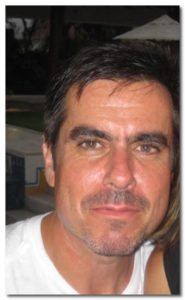 Dr. Antonio Matilla Torres[/caption] [caption id="attachment_772" align="alignnone" width="226"]
Dr. Antonio Matilla Torres[/caption] [caption id="attachment_772" align="alignnone" width="226"]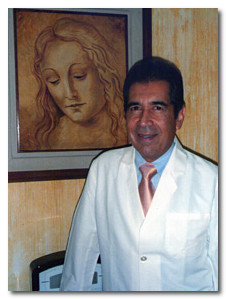 Dr. Ricardo Rivera – Plastic Surgeon[/caption] [caption id="attachment_759" align="aligncenter" width="159"]
Dr. Ricardo Rivera – Plastic Surgeon[/caption] [caption id="attachment_759" align="aligncenter" width="159"] Dr. Alberto Marron - Orthopedic[/caption] [caption id="attachment_771" align="alignnone" width="300"]
Dr. Alberto Marron - Orthopedic[/caption] [caption id="attachment_771" align="alignnone" width="300"]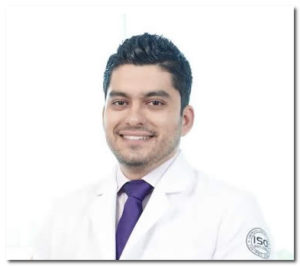 Dr. Omar Morales – GP, Transfusional Medicine and Tic-Born Disease Specialist[/caption] [caption id="attachment_758" align="aligncenter" width="208"]
Dr. Omar Morales – GP, Transfusional Medicine and Tic-Born Disease Specialist[/caption] [caption id="attachment_758" align="aligncenter" width="208"]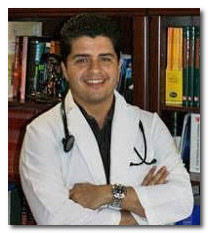 Dr. Adolfo Curiel - Cardiologist[/caption] [caption id="attachment_770" align="alignnone" width="186"]
Dr. Adolfo Curiel - Cardiologist[/caption] [caption id="attachment_770" align="alignnone" width="186"]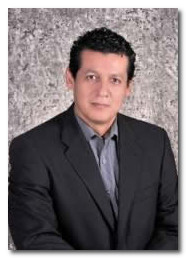 Dr. Luis Robles - Neurosurgeon[/caption] [caption id="attachment_769" align="alignnone" width="294"]
Dr. Luis Robles - Neurosurgeon[/caption] [caption id="attachment_769" align="alignnone" width="294"]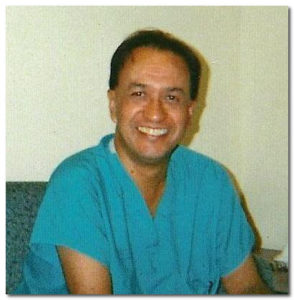 Dr. Luis Arias – General Practitioner[/caption] [caption id="attachment_768" align="alignnone" width="272"]
Dr. Luis Arias – General Practitioner[/caption] [caption id="attachment_768" align="alignnone" width="272"]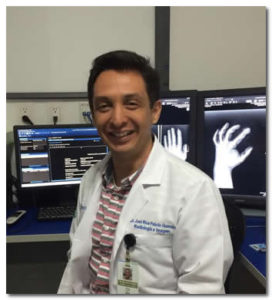 Dr. Jose Rivas - Radiologist[/caption] [caption id="attachment_767" align="alignnone" width="269"]
Dr. Jose Rivas - Radiologist[/caption] [caption id="attachment_767" align="alignnone" width="269"]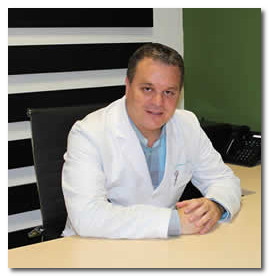 Dr. Hector Escoto Vascular Specialist[/caption] [caption id="attachment_766" align="alignnone" width="300"]
Dr. Hector Escoto Vascular Specialist[/caption] [caption id="attachment_766" align="alignnone" width="300"]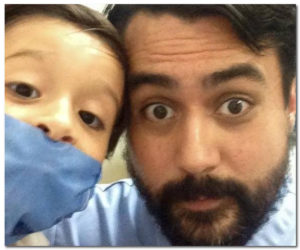 Dr. Felipe Martinez – Anesthesiologist Pain Control Specialist[/caption] [caption id="attachment_776" align="alignnone" width="300"]
Dr. Felipe Martinez – Anesthesiologist Pain Control Specialist[/caption] [caption id="attachment_776" align="alignnone" width="300"]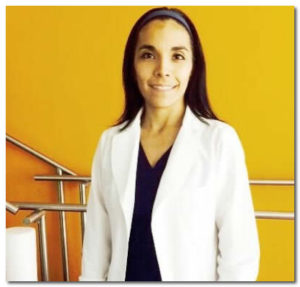 Dra. Fabiola Gallegos - Physical Therapy[/caption]
Dra. Fabiola Gallegos - Physical Therapy[/caption]
Transcript of the Conversation between Barry Kessler and Pamela Thompson
Barry Kessler: Alright, I am in Puerto Vallarta, Mexico, ladies and gentlemen. And I have the honor of being here with Pamela Thompson of HealthCare Resources in Puerto Vallarta. Thank you so much for coming on the program Pamela. Pam Thompson: Thank you for having me. Barry Kessler: Now it seems like you are the go to person whenever, you know, when it happens to pertain to health issues. You seem to be the go to expert, according to all the local community anyway. And so first of all tell us about yourself and what was the path that led you to Puerto Vallarta. Pam Thompson: I used to come here for vacation. Did that for many, many years. Fell in love with the place like everybody plus the right time to move here, so I did. Almost 28 years ago moved here full time. Worked in tourism for a while. Wanted to get back into healthcare. After doing a few other things in tourism went to work with air evacuation and long story but eventually worked my way into opening in health care resources. Barry Kessler: Okay so health care resources, you are located where? Pam Thompson: All over the place. Barry Kessler: Everywhere? Pam Thompson: My main office is at Hospital San Javier but I also work with a couple other hospitals. I work with 26 physicians and a couple of diagnostic companies. We are an independent company. Barry Kessler: Excellent. Okay. Well sure seems like you found your niche here. Pam Thompson: Oh I think so. Barry Kessler: Yeah. Well this is a retirement town I would think on top of it being a big tourist destination. Lot of expats are moving here and living here. There is a lot ageing expats here. So what kind of medical plans do these expats get down in Mexico? Pam Thompson: First I think you would be really surprised that it's not just not the retired and ageing. The past couple of years we have way more people who are, that are much younger than what used to be. Have way more request now for gynecologist and that's not just for menopause, it's for pregnant women. A lot more request for pediatricians. People are moving here that have small children. So it's a wide range of people moving here because now people can work from home, online. Barry Kessler: Yeah. Pam Thompson: They can work, you know, be located anywhere in the world. So we have a wide, it's not just, you know, over 65 type age group anymore Barry Kessler: Yes. Pam Thompson: It's a lot of baby boomers and what are they called, millennials now that are moving here Barry Kessler: Yeah I noticed that. Alright. Well that is interesting and actually some of the restaurant owners that I spoke with are very young. Pam Thompson: Yeah. Barry Kessler: They have got young families. They have chosen to come here, start a business. Pam Thompson: Right. Exactly. Barry Kessler: Live here, raise their families here. So yeah, you are right. Alright. So what kind of medical insurance do these people get? Pam Thompson: It varies. There are international policies. These are policies for people that live or work outside of their home country, either full or part time. Sometimes they get a traveler’s insurance. You can purchase a traveler’s insurance for a couple of days up to a year. Sometimes people purchase a Mexican private policy. You have to have permanent residency to purchase of Mexican private policy. Barry Kessler: Okay. So- Pam Thompson: It's little bit - the older you get, a little bit more difficult to purchase a policy. I think may be you are going to ask me later but Medicare doesn’t cover anything outside of the United States. Sometimes people, they have Medicare and a supplement, then they recommend that you have a good air evacuation policy so that if you have a critical medical situation, you have an air evac policy that could take you back to the United States. Barry Kessler: Yeah that's smart. So you would say supplement what you have in the States if you are receiving Medicare Medicaid then basically have yourself something that you can use local for the small stuff. Pam Thompson: The most important thing is to have a plan. Do your homework. See what works here. I am sorry. See what’s covered here. See what’s accepted here. Make a plan before you come down or as soon as you get here. Barry Kessler: Okay. good. Alright. And so how would you go back doing that? I mean, you just go online, you pick up the phone and? Pam Thompson: Well, we have a lot of people email me ahead of time or may be when they come down and they are looking either for a place to rent or they are looking a property to buy. Lot of times real estate agencies will or their real estate agents will give their clients my number and we are more than happy to sit down, have a chat, go over general health care information. It's not just about health insurance, it's about making sure, maybe you have medications that you have to take. We want to make sure they are available here. You want to check and see how much they cost. Maybe you have cardiac issues. You want to make sure that, you know, you connect with the cardiologist here. There is lot of different issues you want to make sure and do your homework, have everything in place once you get here. Barry Kessler: Okay. Pam Thompson: Rather than wait until you are in the middle of an emergency. Barry Kessler: Yeah that's for sure. Well I have your contact information Pam Thompson: Sure. Barry Kessler: On the blog post for this particular episode of the Puerto Vallarta travel show. You will be able to find it there and great. Okay so what would you say is the most common issue that you deal with as far as the ageing population here? Pam Thompson: Oh my goodness! There are urgent issues and there, the most … Barry Kessler: Or maybe there isn't. Maybe it's just a, it just runs the gamut. Pam Thompson: It runs the gamut. Barry Kessler: Yeah. Okay. Pam Thompson: Everything from, “I have an ear ache” to “My husband just died.” Barry Kessler: Oh. Pam Thompson: I mean that it's a wide variety. Barry Kessler: Yeah, yeah. Pam Thompson: It's a wide variety. Barry Kessler: Well there is a ... Pam Thompson: I never have a boring day. Barry Kessler: I bet you don't. Well here in Puerto Vallarta would you say that like trip falls and stuff like that, broken ankles, broken wrists and stuff like that are pretty common. Pam Thompson: Well you keep saying the ageing population... Barry Kessler: I mean, I mean real. Pam Thompson: I guess I am in that ageing population. Barry Kessler: Me too. Pam Thompson: Yeah we have a lot of, you know, falls, hip replacements, those kind of things. Yeah, orthopedic things. You know the cobblestones are streets are kind of hard to maneuver sometimes. Barry Kessler: Yeah I know that. Pam Thompson: So lot of orthopedic issues. I think, I think so. Barry Kessler: Okay. Pam Thompson: No, no there really isn't any one specific. Barry Kessler: So it's like normal. It's like at home. right? Pam Thompson: Yeah it's just like in the United States and Canada. Barry Kessler: Yeah okay. Well speaking of that let’s talk about Mexican citizens. What kind of medical insurance do or what do they have? What do they use for medical issue? Pam Thompson: There is no such thing as free medical care here. Doesn’t matter how poor you are. There is a vast difference between the public system and the private system. And that's important for the people that are going to be moving here to understand. The public system is the system that all the private hospitals … I mean I am sorry, the private system is what the private hospitals fall under where you and most of the doctors that I work with. The public system is the IMSS system and the regional hospital, that's the IMSS and Seguro Popular. Seguro Popular was created for the poorest of the poor by one of the ex-presidents of Mexico, I don't know how many years ago. But they are in it it's because there is no such as free medical care in Mexico. Many times people, non-Mexicans, have this idea that they are going to come down here and have free medical care or they are going to participate in the IMSS or the Seguro Popular system. They can, but they need to go take a look at the system. It's a vast difference than the private system. The regional hospital is … it's a sad place. I would suggest that they would go and take a look, ask any Mexican what they think about it. We collect donations for their - you need to take your own soap, you need to take your own shampoo. The staff there is wonderful. They work very, very, very hard with minimal resources. Maybe in other places in Mexico it's different. I have heard but it's over crowded, minimal resources. It's not a pleasant place and again the staff works extremely hard with minimal resources. It's not, I would never consider IMSS or Seguro Popular an insurance. But in some cases that's what people have to have. If one goes to a private hospital and there can't pay the bill then we have to send them on to the state hospital. Barry Kessler: Well, yes. Pam Thompson: And - Barry Kessler: And that's like going off to Siberia. Pam Thompson: Well no not really. Not really because they are Barry Kessler: Okay. Pam Thompson: Going to get the best care that they can give them out there. Barry Kessler: Okay. Pam Thompson: But it's going to be very different than the private system. They have volunteers that will go out and visit them and take soap and food and things like that. I just encourage people to the things that you know, the perfect system to go out and look at it first. Barry Kessler: Right. Yeah and sounds little scary. Pam Thompson: It is but and it's a sad situation and mostly for you know, it's for Mexicans and I often times feel bad when I have to send a non-Mexican out there because in reality I feel those beds are for deserving Mexicans. Barry Kessler: Yeah. Pam Thompson: But that's personal feeling. Barry Kessler: Well I understand. I agree with you. Alright, so people come here for you know, they don't come here expecting to get sick or anything like that. So people do come down here for medical tourism. You get involved in the medical tourism field? Pam Thompson: I have many, we have many people that come down specifically to have medical services. It used to be years ago that people just came for plastic surgery or bariatric surgery. Barry Kessler: Yeah. Pam Thompson: Now they come for everything from hip replacement to cataract surgery, knee replacements. And I kind of look at medical tourism as little bit different. In the high season when I have, for example, this last high season I probably scheduled more MRIs than I ever have and that was because I would get emails and emails and phone calls, “Pam, somebody on the beach gave me your phone number. I am from Canada. I have been waiting for months for an MRI …” Barry Kessler: Ah!! Pam Thompson: “How soon can I get one here?” Well I can get you scheduled tomorrow. Okay, so then we set it up. To me that's kind of medical tourism as well. Barry Kessler: Yeah. Pam Thompson: Or the same with a colonoscopy or an endoscopy, you know regular type procedures. So to me diagnostic services are sort of a medical tourism as well. Barry Kessler: Yeah, although I would … you would never think that. You go, “Oh yeah I am coming here for you know a lift or this or that.” you never think, “Hey I will stop in for an endoscopy” Pam Thompson: Right. Barry Kessler: Or whatever. You are right. Pam Thompson: Or we have people that come in the high season that plan ahead and they go ahead and get all their yearly studies done while they are here. The mammogram, you know their check ups, their physicals, you know, everything, the dermatology checks while they are here. So to me that's medical tourism as well. But as well we also have the plastic surgery and the big surgeries. Barry Kessler: Yeah and do you get involved in that? Pam Thompson: Oh yes. Quite often, there is many, you know just google medical tourism and you are going to come up with tons of companies. The difference, I think is that with a med … and most of medical tourism companies are not going to like that I say this but they are the middle man. And of course they are going to take a big chunk. Barry Kessler: Yeah. Pam Thompson: And they also don't let you speak directly with the destination or the doctor. Where with me, I am in touch with the doctor, I am in the destination, there is not a big commission involved because I work in a different way with my doctors and hospitals. So, so yeah I am kind of all about cutting out that middle man. Barry Kessler: Good. Pam Thompson: So yeah, we have, we do quite a few. Barry Kessler: Alright. How do you figure out, like price schedules and stuff like that? Do people …? Obviously they ask before they get it done. Pam Thompson: Oh they write to me and tell me what they want done and it depends on the procedure. Barry Kessler: Right. Pam Thompson: Some of them I already have, I know. Barry Kessler: Because you do them a lot. Pam Thompson: Because I know what the doctor is going to charge. Barry Kessler: Yeah. Pam Thompson: We have a lot of package prices with you know, if somebody needs to come to have a hernia, I already know what that doctor’s package is with the hospital. If somebody is going to just you know, it just depends on what the procedure is. If it's a little bit different or if there is a complication, then I just check with the doctor and then I can send it back, send back the price to the patient. Barry Kessler: Cool, wow! Alright. Well, what would you say is the most common procedure that's done here? Pam Thompson: I think the most common request that I get is still for plastic surgery. Barry Kessler: Okay. Pam Thompson: That's the most common request. The most common procedure … well … it's still plastic surgery, bariatric surgery, lot more hip and knee replacements. Barry Kessler: Really? Wow! Pam Thompson: I work with a urologist who does a lot of high foo prostate cancer surgery. Bariatric surgery. Well it just kind of varies. Barry Kessler: Yeah, it sounds like it. Okay, well tell us about the quality of care. I mean, where are the hospitals that you deal with. We are sitting in one right now, San Javier, right? Pam Thompson: Marina. Barry Kessler: Right by the Marina. Are they here in Puerto Vallarta, in Guadalajara, where are they? Pam Thompson: Well I .. for the hospitals that I work with, I actually go inside, I mean I go inside. I see the English speaking in-patients, whose right now it's a little bit less because we are more in a low season. San Javier Marina, across the street from where the cruise ships stop. Also Vallarta Medical Center on the south side of plaza Caracol. I don't go all the time but also hospital might assist on the south side. Hospital San Javier Riviera in Nuevo Vallarta. We have other good private hospitals in the area. I don't work with them mainly because I don't have time. But they are all the Puerto Vallarta area. Of course there is many, many hospitals in Guadalajara to pick I mean but I am the most familiar with this area. Barry Kessler: Sure. Pam Thompson: The doctors I work with, 26 of all specialties. I am really picky about the doctors that I work with. We have every specialty available right now. And now we even have dermatologist, geriatric. I work with a diagnostic center, MRI. I mean it's really hard to kind of say what I do. Barry Kessler: Yeah. well sounds you do everything. Pam Thompson: We do monthly screening clinics of all kinds, weekly speakers programs. Every year we do a huge, it's like a medical expo. Last year we had up to 4000 people attend. Barry Kessler: Wow! Really? Puerto Vallarta? Really? Pam Thompson: It's called medical matters. It's at the hotel Marriot. Three large rooms with speakers programs running continually. I spend a lot of time at the funeral home this year. Barry Kessler: Wow! Pam Thompson: And do assist, you know the family or the surviving spouse when somebody passes away. And I don't know. Barry Kessler: Yeah, yeah. Pam Thompson: It's just everyday it's different. Barry Kessler: Yeah. So yeah the repatriation thing. So you help along with that too. I guess the whole life cycle happens here. Pam Thompson: Yes. Barry Kessler: In Puerto Vallarta. It isn't that different from any other place in the whole wide world, even though Pam Thompson: Exactly. Barry Kessler: We are in paradise. Pam Thompson: Right. Barry Kessler: Yeah. So besides the expats that live here for years at a time, of course we also have our fair share of snowbirds Pam Thompson: Right. Barry Kessler: Here in Puerto Vallarta. They come in from Canada, they come in from the upper reaches of the United States. So what kind of coverage can they get when, you know, their long time rent is not necessarily …? Pam Thompson: For full time? Full time residence? Barry Kessler: Well they are not going to be full time. They are going to be like six months out of the year. So … Pam Thompson: Then they should … okay. Barry Kessler: Do they need to do what you are talking about before? Pam Thompson: Then they need a good traveler’s insurance. Barry Kessler: Okay. Pam Thompson: And a traveler’s insurance really needs to be purchased prior to departing their home country. Barry Kessler: Okay. Pam Thompson: So for example, ones that are going to be coming for next winter can start looking at options during the summer. And I always say this is I think Canadians must learn in school that they need to have a traveler’s insurance Barry Kessler: Really? Pam Thompson: because it's pretty rare that a Canadian arrives without traveler’s insurance. Barry Kessler: Ha! Pam Thompson: It's very rare. Canadians are well prepared and they come with a good traveler’s insurance. People from United States, not so much. Barry Kessler: Not so much. Pam Thompson: And it's usually they are the ones that end up with a critical situation and then they are surprised that they are, you know, their Medicare supplement or HMO doesn’t pay directly outside of the United States. So in the summer months or prior to their vacation, whether they are coming for a month, two weeks or six months, they need to start looking at options. There is a lot of very good traveler’s insurance out there. A good traveler’s insurance will include an air evacuation policy in it and as I said Canadians are well aware of traveller’s insurance and their traveller’s insurance almost always includes an air evacuation policy. Barry Kessler: Okay. Is it expensive? You know? Have you ever -? Pam Thompson: Traveler’s insurance? Barry Kessler: Yeah. Have you looked at it? Pam Thompson: No, they are all very different prices. Barry Kessler: Okay. Pam Thompson: But I mean it's not cheap. Barry Kessler: Right. Pam Thompson: But I always, you know, tell people cheap isn't always better. Barry Kessler: Right. Pam Thompson: You want one that, you know, if you pay, you know, 10 or 15 bucks for traveler’s insurance obviously they are not going to do too much for you. Barry Kessler: That might not save your life. Pam Thompson: That's right. Barry Kessler: Right. So you might as well, if you are thinking about like living you might consider just getting the right kind. Pam Thompson: One other thing I always stress to people that it's really probably one of the most important things to know is that insurance here is only accepted for inpatient services. You always, always have to pay out of pocket for consults, emergency room visits, medications, yeah, yeah, x-rays, lab, any of those things. You can turn it in for re-imbursement. That's not a problem. We will help you do that. But it's only accepted as form of payment for inpatient services normally with a minimum 24 hours stay. That's really important. Barry Kessler: That is important. Pam Thompson: You can't just go to the doctor and have a consult and flip out your insurance card. The receptionist will look at you kind of funny and say, “I want money.” Barry Kessler: Yeah. Alright, so are, you know, credit cards accepted here? Pam Thompson: Yes. Barry Kessler: Alright. Pam Thompson: Yes, of course. Barry Kessler: Alright, right on. well bring your medical insurance and bring your credit card. Pam Thompson: And your credit card. Barry Kessler: Okay bring them both. Pam Thompson: Right. Barry Kessler: So you do get involved with the like medical emergency repatriations as well? I imagine. Pam Thompson: Sure. Barry Kessler: Okay. Pam Thompson: You know we don't do as many air evacuations as we used to because we have, we can take care of the patient here. Barry Kessler: Yeah you must be … Pam Thompson: But we do, we have done a few flights this season. There is different reasons why people would be air evacuated back to Canada or the United States. If it's a, going to be a long time recovery like may be a stroke patient and … here we don't have a … we have hospital or home. We don't have a like a long term rehab. Barry Kessler: There is no rehab centers. Pam Thompson: Right. So it's going to be really expensive to stay in a, you know hospital. Barry Kessler: Yeah. Pam Thompson: So you know they are going to … it's better to go home. Barry Kessler: Alright. Pam Thompson: And a lot of times the family wants the patient home. So then we do a, do an air evacuation. Barry Kessler: Okay. Pam Thompson: And the air evacuation is very, very expensive and it must be paid upfront, before that plane leave take off down the runway. So it's important to have air evacuation policy or have your insurance include an air evac policy. Barry Kessler: Good. Alright. I think it's a great idea. We talked a little bit about having to be a citizen to get medical benefits. So if somebody was coming down here to live full time you would suggest, you know, getting a residency all straightened away so you can eventually get medical insurance in Mexico? Pam Thompson: Not necessarily. Barry Kessler: Okay. Pam Thompson: Only if you want to have, I mean it's up to the person if they want to be a resident. Barry Kessler: Okay. Pam Thompson: A permanent resident, that's a personal decision. For medical benefits, in order to apply for Seguro Popular which would cover you only at the state hospital which isn't all that ... Barry Kessler: Which is the horror show that Pamela was just telling us. Pam Thompson: No, it's not necessarily a horror show. Barry Kessler: Oh alright. Okay, not a horror show. Pam Thompson: But it's just not … it's very different than the private ... Barry Kessler: Yeah. Pam Thompson: System. But sometimes that's all anybody can afford. Barry Kessler: Sure. Pam Thompson: Then you have to have your residency. But also there is some very good Mexican private policies. Barry Kessler: Okay … Pam Thompson: But you have to ... Barry Kessler: That's what you are getting at. Pam Thompson: Yeah. that's not a horror show and there are some good policies but you have to have your permanent residency. Barry Kessler: Okay. So you do need to get that permanent residency. Pam Thompson: For that, yeah. Barry Kessler: For that. Pam Thompson: Sure. Barry Kessler: Otherwise you are just doing it with what you were talking before. You are supplementing and you are … Pam Thompson: And there is also, you know, the other option which is part of the public system but you still have to apply. Some people think they automatically can get it as the IMSS system. IMSS is a government program for people that are employed. Mexican workers by law, their employers pay for them to participate in the system. Barry Kessler: Interesting. Pam Thompson: Non-Mexicans can apply but there is a long list of pre-existing conditions. So if one has certain pre-existing conditions they wont qualify for it. Barry Kessler: You better be healthy. Pam Thompson: Yeah and they’ve added a lot of pre-existing conditions. So, but that, it's kind of confusing but that's also part of the public system. Barry Kessler: Okay. Alright. What is …? I think we already talked about the most common issue that you work with day to day, which is everything. You don't really have anything special here. What type of coverage would you get if you are coming to Puerto Vallarta? We have talked … Pam Thompson: As a visitor? Barry Kessler: As a visitor. What would you do? Pam Thompson: Well I would just,I would make sure and have a good traveller- Barry Kessler: Just get that travelers insurance? Pam Thompson: Yeah. Barry Kessler: And it doesn’t really matter if you come in for a week or …? Pam Thompson: No. Barry Kessler: Or a month or …? Pam Thompson: Just have a good traveller’s insurance. Barry Kessler: Just do it for a week even. Pam Thompson: Right. Barry Kessler: Right? Because There are issues. There are people … Pam Thompson: Of course. Barry Kessler: That get in trouble. You know they, they don't have to be long term travelers to have a medical issue. Pam Thompson: Exactly. Barry Kessler: Alright. What’s the biggest mistake you can make when you are buying, let’s say, medical insurance in Mexico? Is there something that you would kind of tell people to stay away from or don't do that or …? Pam Thompson: Well you don't necessarily, you don't know it's … it's kind of hard to say buying medical insurance in Mexico. I will say buying medical insurance period because you are not always going to buy your medical insurance in Mexico. One of the things that I said in an article I wrote recently is, it's not always the case, but I say, I have seen in the past, especially this past year, a policy sometimes is just as good as the agent you buy it from. Some agents, and I use the term loosely, are don't really know the policy. You know, go to a website that have many of the insurance policies. Pretty much anybody can become an agent. They just make a commission on it. Some of them don't really even understand the policy. You want an agent that's going to be there to help you and that really understands the policy in case you have a claim or you have an emergency. That's really important. Barry Kessler: Yeah. Pam Thompson: I mean a lot of … many of them you can just go online and purchase. And that probably okay for a short term traveller’s insurance. But if you are purchasing a, you know, a year around policy, you know, regular policy, you are here full time. Make sure you are with an agent that understands the policy and that goes for an international policy or a Mexican private policy. And there are some very good agents in the area. And there is also some people that are just kind of in it to get the commision, they don't really understand the policy. that's an important ... Barry Kessler: Yeah. Pam Thompson: Important point. Barry Kessler: Excellent. That's good to know. Is there …? Pam Thompson: And I don't sell insurance by the way. Barry Kessler: Okay. Pam Thompson: That's really important that people know. Barry Kessler: Well you know everybody has got to Google search. Do it yourselves, everybody. And you should always, you know, follow up with these Google searches with, you know, just find out what their record is. Okay, if it's an insurance company that's got a bad record, believe me there will be a trail of people saying, “Hey stay away from these people.” so do your homework, double check before you buy the policy and like Pamela said get yourselves somebody who is experienced, not a fly by night. Pam Thompson: I do have a list of reps that I can recommend and that I work with. I can tell you which hospitals work with which insurance companies and I can answer any questions but I don't sell any insurance. Barry Kessler: Okay, good. Alright well I will have links for you to get hold of Pam and ask her those questions if and when you need it and believe me if you are going to be coming down here, you will have some questions for Pamela. Have we forgotten anything? Is there something that we haven’t touched base on yet about medical here in Puerto Vallarta? Pam Thompson: Oh probably but I can't remember. I mean anyone is welcome to send me an email. I prefer an email over a phone call. It's really kind of hard to describe what I do. I work closely with both the Canadian and US consulate. The most important thing is do your homework, have an emergency plan, we do a lot of conferences. I do a conference in the fall called ‘End of Life Decisions and Banderas Bay’. That's a real uplifting topic. Barry Kessler: Oh yeah. I just said, Yeah baby, it's a good one. Pam Thompson: You know, what to … how to die here but those are the important topic. Barry Kessler: Yes, yeah well. Pam Thompson: We do a lot of fun, you know, kind of topics too. I am always looking for a few volunteers, work with the kids with cancer. That's why when you saw at my office it looked like Sounds club. Barry Kessler: Yeah it did. Pam Thompson: I am real proud of my doctors. I have worked with them for many years. I think they are really professional. I think they are really good people. I don't know. I think we have covered everything. They are welcome to get on my newsletter list. We send a monthly newsletter of all of our clinics and our speakers programs. Well that's about it. Barry Kessler: Okay. We will have all of the great links so that you can get in touch with Pamela. Send her an email. Don't pick up the phone and call her. She gets busy … Pam Thompson: You can call if it's an emergency but ... Barry Kessler: Yeah. Pam Thompson: Prefer an email. Barry Kessler: She is a busy, busy lady you guys. So keep that in mind but also remember that she is here to help. You know, I have spoken with a lot of people in town and a lot of important people in town and more than once I have heard them say, “Pam Thompson saved my life.” Pam Thompson: Aww! Barry Kessler: And you know I think that that says a lot. Pam Thompson: Thank you. Barry Kessler: About you and about how people feel about you. Pam Thompson: Thank you. Barry Kessler: And I just thank you so much for coming on the program and sharing all this great information with my listeners and once again I will have all that information that you can get a hold of Pam on my website. Thanks again.